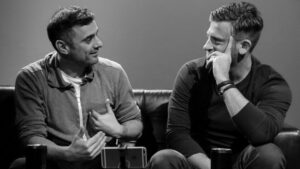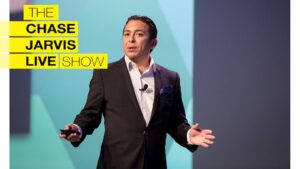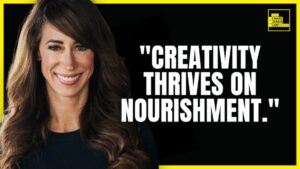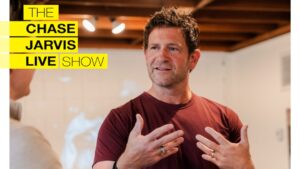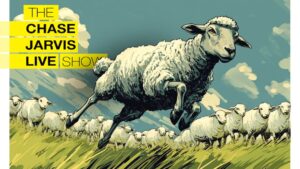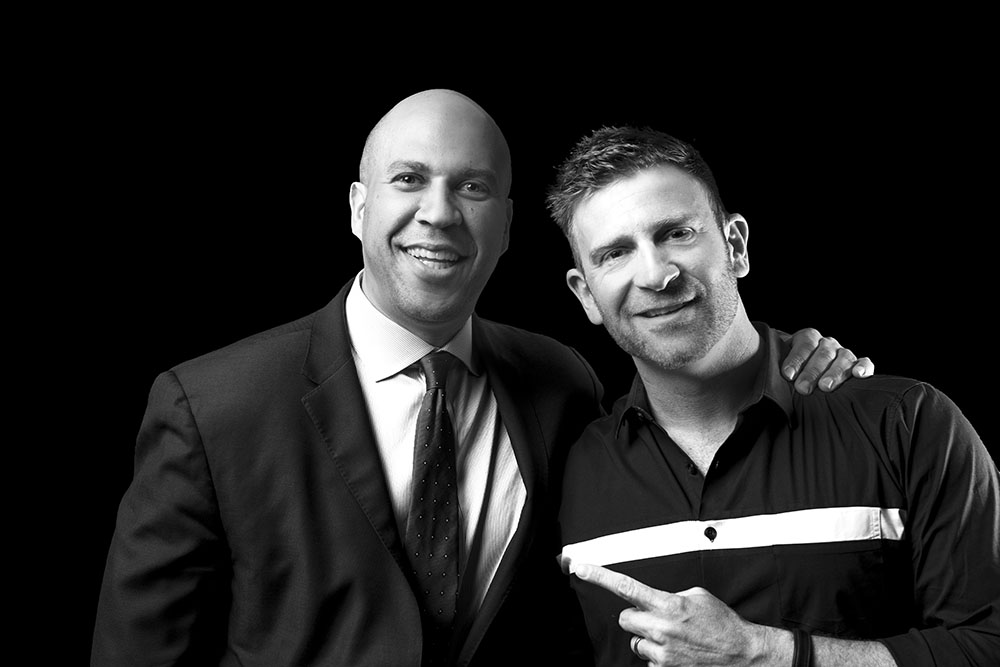
Cory Booker is one of those most compelling and dynamic voices in American politics: the former mayor of Newark, New Jersey, the subject of the 2005 documentary “Street Fight” that chronicles his initial 2002 bid for mayor, and he’s particularly engaged on the topic of education reform – a subject that’s near and dear to my own heart. He’s also an incredibly candid and open personality who’s willing to share many things that those in his position typically haven’t – which is not only refreshing but ultimately makes him that much more effective as a leader.
Regardless of your political affiliation or whether you agree with Senator Booker from a policy perspective, what I want you to take away from this conversation is how wildly creative he is in a field that’s ostensibly not “creative.” When you think of creative professions, politics would probably be at the bottom of the list for most, and yet he’s proof that not only is that assumption false, but that our very definition of creativity must be reconsidered – and full of insights that can be applied to creators, entrepreneurs and really anyone with the goal of turning their dreams into reality.
Today on the podcast,
- Sen Booker is incredibly good at getting eyeballs on the causes he advocates for, and he gets into his strategy – for example, you may have heard about his pothole-fixing campaign during his time as Mayor of Newark where he asked residents to alert him to potholes via twitter which he then fixed with unprecedented speed as a way of building their trust in the city government
- He talks very openly about the times he’s fallen short and even outright failed – and how he turned those into valuable learning experiences. For example, he was a highly touted high school football player and ended up playing at Stanford – only to ride the bench for his whole first season, an experience that got him to take a hard look in the mirror and reinvent himself
- I’ve talked a lot about the critical importance of controlling your internal state as a precursor to success, and Sen Booker gets into that in quite a bit of depth – including a lot of specifics on the exact tactics he uses to take control during those inevitable moments where we feel control slipping away from us
Also – This episode is brought to you by Freshbooks, who make incredible cloud accounting software designed specifically for freelancers, solopreneurs and creatives aka you and me. Learn more + sign up for a free trial right here (and please enter “The Chase Jarvis Live Show” in the “How you heard about us” section)
Enjoy!
The struggle is what’s most important
FOLLOW SEN. BOOKER:
twitter | website
Listen to the Podcast
Watch the Episode
Subscribe




Some Questions I Ask:
- What was the world that you grew up in that helped you become so creative and entrepreneurial minded? [1:40]
- Tell us the story of how you used Twitter to both connect your community and fix potholes. [11:23]
- What role did sports play for you in your ways of thinking? [17:04]
- Was there any pressure in your world? Did you feel the world pressuring you to do something? [21:30]
- What was it like to be the subject of a documentary and do you think it shared a piece of you with the world that they hadn’t seen before? [29:00]
- Do you have any creative practices? [41:04]
- What do you do on a daily basis to thrive? [46:10]
In This Episode, You Will Learn:
- How Senator Booker uses stories to recognize, remember and unleash creativity and love in his own life. [1:40]
- When Senator Booker met with Ukrainian military, he reminded them of the power of creativity. [9:00]
- Senator Booker created a “we” government in Newark by encouraging his community to tweet him pictures of potholes. He’d dispatch a team to have them fixed within hours. One small act of creative engagement can send ripples out to change the world. [11:50]
- How taking ownership and changing the things in the world that you want changed can change you for the better. [13:55]
- How Senator Booker uses struggle, sacrifice and grace for himself to continue to grow as a person and achieve his ultimate goals. [19:07]
- What it was like growing up as one of the only black kids at Cory’s school and how it made him compassionate and brave. [22:17]
- Why the experiences that make you feel alone and isolated should be used as fuel to be more compassionate and open. [24:00]
- 40% of homeless youth are gay and lesbian. [25:30]
- Advice to the young on how to go far in life. [27:00]
- I ate my humble pie serving tables in restaurants, Senator Booker ate his documentary, Street Fight, losing an Academy Award to The March of the Penguins. [28:10]
- Why Senator Booker stays living in a neighborhood that lives below the poverty line. [30:30]
- America has the highest incarceration rate in the history of humanity. [32:35]
- Why America would be better off to internalize the pledge of allegiance. [37:00]
- “We can’t survive as a country if we can’t love one another.” [39:10]
- What happens when we educate our population. Spoiler alert. Things get better. [39:40]
- How to unlock your creativity with a capital C. [40:30]
- How Senator Booker uses poetry (and the risk of sharing it) to problem solve. [41:17]
- Why it’s important to remind yourself of your cause, especially when you get criticized and things get hard. [43:00]
- Senator Booker’s most traumatic moment and how he now thrives off what he used to fear. [43:55]
- One of my favorite sleep hacks- two tablespoons of apple cider vinegar with one tablespoon of honey mixed with warm water before sleep. [46:46]
- Cory’s aha moment when it came to meditation- “my emotional states were the product of my thoughts.” [48:17]
- The Tony Robbins method to getting to the right strategy by putting yourself in the right state. [50:26]
- Senator Booker’s morning routine and the tough decisions that every morning carries. [51:00]
This podcast is brought to you by CreativeLive. CreativeLive is the world’s largest hub for online creative education in photo/video, art/design, music/audio, craft/maker, money/life and the ability to make a living in any of those disciplines. They are high quality, highly curated classes taught by the world’s top experts — Pulitzer, Oscar, Grammy Award winners, New York Times best selling authors and the best entrepreneurs of our times.






